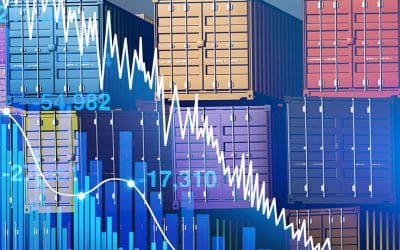Inflationary recession or a slowdown in Globalization

Redacción Mapfre
Lately, as I enter into intense discussions with other economists about the most plausible scenarios in sight, it strikes me how much we now like to talk about “inflationary recession” (...) As if that were our biggest problem! Yes, it will be tomorrow, and the day after, but what about in a few years’ time? An old ghost from the past — before Ukraine, Covid-19, and Trump — is lurking around the corner... Remember age-old stagnation? Allow me to introduce another concept: a slowdown in globalization.
Globalization had already slowed down since the Global Financial Crisis of 2008-2009, dragging down economic growth, especially in emerging market economies. That being said, following the changes produced in the wake of the last two crises, we do not expect globalization to reverse, but we do expect it to advance with less impetus than in the first two decades of the turn of the millennium. This implies a further drag on growth, already under strong downward pressures as a result of aging and productivity losses that have been recorded roughly since Spain won the World Cup.
The slowdown in globalization has been partly a natural economic outcome, which includes the internalization of the environmental impact of transport, nearshoring, and labor-saving technological progress. But it also reflects the policies, rapid growth, and industrial modernization seen in some emerging markets, which erect barriers to trade and investment, such as the tariffs in the US-China trade war.
Unfortunately, we believe that the economic and political factors holding back globalization today will persist in the coming decades, finding support in other known collaborators, such as Covid-19 or other biological emergencies. This, together with the regionalization of global value chains, geopolitical competition for supplies, the emergence of a new Iron Curtain, and the partial decoupling of China from the US, will underpin this dynamic and more than offset the capital and trade flows resumed after the current conflicts.
This slowdown in globalization — which is really a euphemism for partial de-globalization — will add to the other problems we have been seeing, such as debt, aging, and loss of productivity and global growth, fueling the fires of inequality, poor governance, and dangerous social disaffection that are likely to accentuate and perpetuate problems that will last far beyond the coming recession. Although it is logical to focus the debate on more short-term issues, given their seriousness, it is time to look further into the future where we face a world that is no longer going to look like the one we have come to know.



